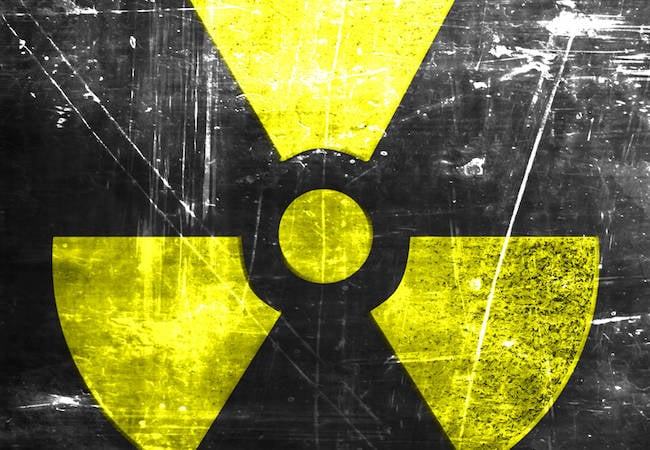Blockchain Biz Goes Nuclear: Standard Power Wants To Use NuScale Reactors For DCs

Colocation outfit Standard Power hopes to power two new datacenters in Ohio and Pennsylvania entirely by miniaturized nuclear reactors from NuScale.
Standard Power makes no secret it focuses on providing datacenter services to not just those into AI workloads and other kinds of high-performance computing but also those performing proof-of-work blockchain mining, the kind needed to craft digital tokens like Bitcoin. The significant energy requirements of this type of blockchain work spurred an investigation by the White House Office of Science and Technology Policy last year, and calls by lawmakers to implement reporting and/or sustainability requirements for such operations.
Generally speaking, a datacenter packed with proof-of-work miners is going to demand a chunky amount of power. Concerned it may not get adequate electricity supplies for its new facilities, which by the sounds of it will support blockchain mining as well as other workloads, Standard Power said it hopes to take the nuclear option.
"We see a lot of legacy baseload grid capacity going offline with a lack of new sustainable baseload generation options on the market especially as power demand for artificial intelligence-computing and datacenters is growing," Standard Power CEO Maxim Serezhin said in a statement.
And the colo outfit's Ohio and Pennsylvania datacenters may need or get a lot of power. The company expects to deploy 24 of NuScale's small modular reactors between the two sites. These reactors are reportedly capable of generating 77 megawatts apiece — putting the total deployed capacity at 1,848 megawatts.
Despite the announcement, it may be a few years before Standard Power can realize its nuclear dreams. As we learned in January, Idaho National Labs will be among the first to demonstrate NuScale's reactors, and the first of these modules isn't expected to come online until 2029. We asked Standard Power when it expects its facilities will be operational; we'll let you know if we hear anything back.
- Nukes, schmukes – fuel cells could power future datacenters
- UK splashes £4B to dive into next-gen nuclear submarines
- Why can't datacenter operators stop thinking about atomic power?
- Virginia industrial park wants to power DCs with mini nuclear reactors, clean hydrogen
As we discussed last week, while commercial reactors of this kind are a relatively new development, the underlying technology isn't. The expertise required to miniaturize reactors has been around since the 1950s and was developed for things like submarines, such as the USS Nautilus.
The innovations that small modular reactors (SMRs) make largely have had to do with manufacturing and modularity. The idea is that these reactors can be built on an assembly line and deployed in clusters depending on the amount of power required. TerraPower, Westinghouse, and NuScale are just a few of the companies developing SMR technology, although NuScale is the first to receive approval by the US Nuclear Regulatory Commission for commercial deployments.
Standard Power is hardly the first datacenter operator to get excited about nuclear power, either. Cumulus Data opened a datacenter next to a nuclear plant — the full-size kind — in January and last month we learned that Microsoft is now hiring someone to potentially deploy SMR systems to power its growing cloud enterprise. ®
From Chip War To Cloud War: The Next Frontier In Global Tech Competition
The global chip war, characterized by intense competition among nations and corporations for supremacy in semiconductor ... Read more
The High Stakes Of Tech Regulation: Security Risks And Market Dynamics
The influence of tech giants in the global economy continues to grow, raising crucial questions about how to balance sec... Read more
The Tyranny Of Instagram Interiors: Why It's Time To Break Free From Algorithm-Driven Aesthetics
Instagram has become a dominant force in shaping interior design trends, offering a seemingly endless stream of inspirat... Read more
The Data Crunch In AI: Strategies For Sustainability
Exploring solutions to the imminent exhaustion of internet data for AI training.As the artificial intelligence (AI) indu... Read more
Google Abandons Four-Year Effort To Remove Cookies From Chrome Browser
After four years of dedicated effort, Google has decided to abandon its plan to remove third-party cookies from its Chro... Read more
LinkedIn Embraces AI And Gamification To Drive User Engagement And Revenue
In an effort to tackle slowing revenue growth and enhance user engagement, LinkedIn is turning to artificial intelligenc... Read more

